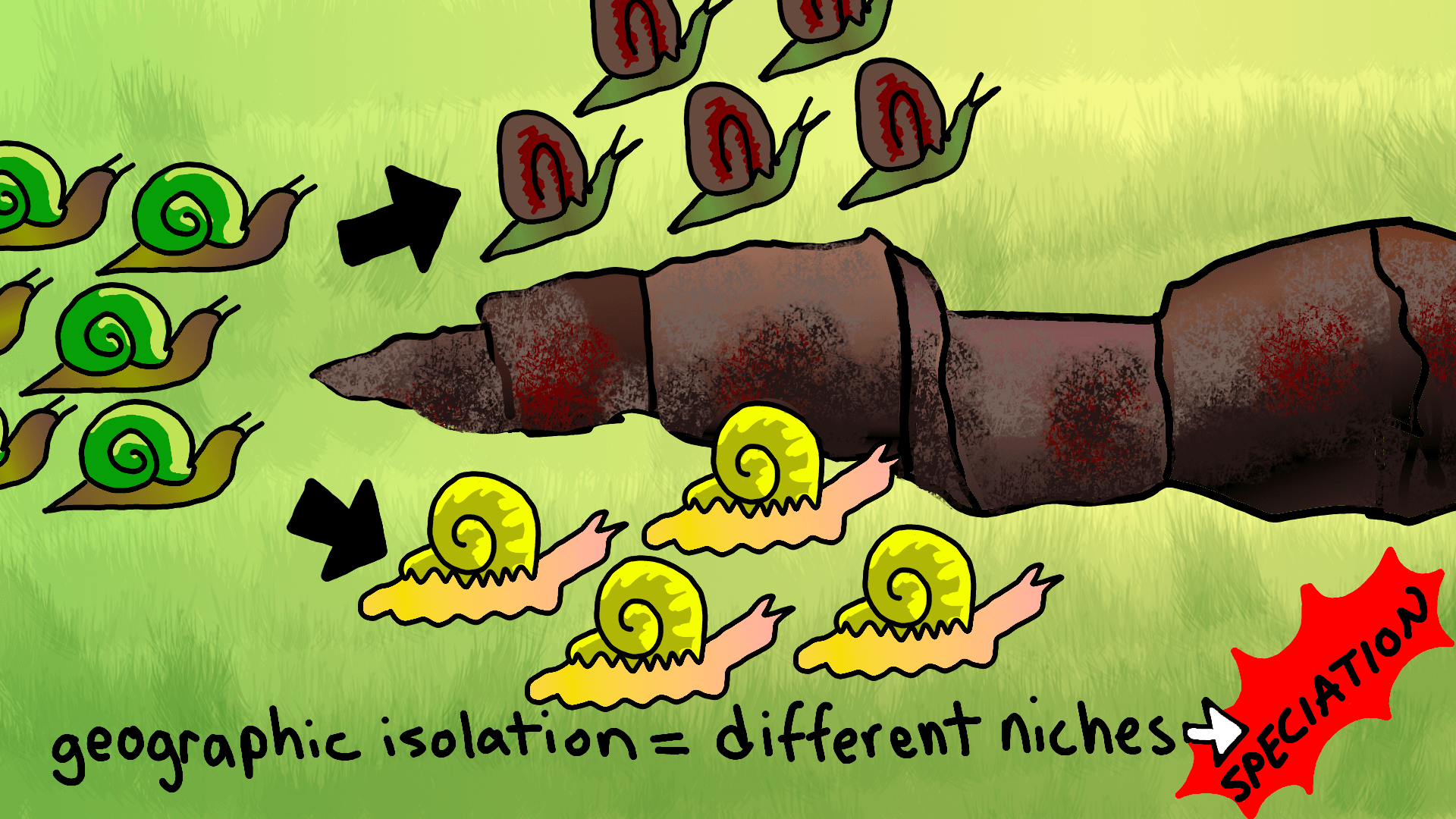26+ How Do Geographic Isolation Affect Speciation
How Does Geographic Isolation Cause Speciation. Why is geographic isolation important in the process of speciation.

Is Population Subdivision Different From Speciation From Phylogeography To Species Delimitation Huang 2020 Ecology And Evolution Wiley Online Library
In peripatric speciation small population size would make full-blown speciation a more likely result of the geographic isolation because genetic drift acts more quickly in small populations.

How do geographic isolation affect speciation. When a population is separated because of a geographic feature like distance a canyon a river or a mountain range those two subgroups of the population are no longer able to reproduce together. How does geographic isolation affect a population. Rivers change course mountains rise continents drift organisms migrate and what was once a continuous population is divided into two or more smaller populations.
The geographic isolation of the finches on different islands mant that each islands environment selected for traits that were beneficial on that particular island. Causes individuals of an original species to accumulate. How does geographic isolation affect a population.
Islands epitomize allopatric speciation where geographic isolation. Scientists think that geographic isolation is a common way for the process of speciation to begin. Right from the formation of mountain ranges and canyons to the formation or destruction of land bridges all these physical events are considered causes of geographic isolation.
How Does Geographic Isolation Cause Speciation. Islands epitomize allopatric speciation where geographic isolation causes individuals of an original species to accumulate sufficient genetic differences to prevent them breeding with each other when they are reunited. The geographical isolation is the physical separation of two populations by the geographical barriers.
Scientists think that geographic isolation is a common way for the process of speciation to begin. Geographical and reproductive isolation are two types of mechanisms that lead to speciation. Genetic drift and perhaps strong selective pressures would cause rapid genetic change in the small population.
How does geography affect speciation. Geographical isolation leads to allopatric speciation through adaptive radiation. Rivers change course mountains rise continents drift organisms migrate and what was once a continuous population is divided into two or more smaller populations.
This occurs through adaptive radiation and allopatric speciation. Over time genetic differences accumulated in the isolated populations leading to many distinct finch species. Geographic isolation of a species occurs as a result of physical changes in its natural environment.
Rivers change course mountains rise continents drift organisms migrate and what was once a continuous population is divided into two or more smaller populations. This occurs through adaptive radiation and allopatric speciation. This has the end result of speciation.
This has the end result of speciation. The geographical isolation is a form of reproductive isolation. Thus these two species are considered different since they cannot successfully mate.
Correspondingly how does geographic isolation affect speciation. What speciation is due to geographic isolation. Geographic isolation can lead to speciation because the environment plays a role in natural selection.
Islands epitomize allopatric speciation where geographic isolation causes individuals of an original species to accumulate sufficient genetic differences to. When a population is separated because of a geographic feature like distance a canyon a river or a mountain range those two subgroups of the population are no longer able to reproduce together. As the result of geographic isolation the two species are reproductively isolated.
Allopatric speciation involves geographical isolation of a population from other populations of the parental species and acquisition of characters that promote or ensure reproductive isolation once sympatry is reestablished. The geographical isolation is the physical separation of two populations by the geographical barriers. The reproductive isolation is the separation of two populations of the same species preventing interbreeding and production of a.
Geographic isolation refers to the separation of members of a population by a physical barrier such as a mountain or body of water which disrupts the gene flow between them and begins the process of speciation. The reproductive isolation occurs due to mechanical ecological temporal or behavioral isolation of populations. Scientists think that geographic isolation is a common way for the process of speciation to begin.
The reproductive isolation is the separation of two populations of the same species preventing interbreeding and production of a fertile offspring.

How Does Geographic Isolation Contribute To Evolution Socratic

Global Warming Lesson 1 Science Resources Global Warming Lesson Earth And Space Science

Pin On Amazing Middle School Science Resources By Science Teachers

Geographic Isolation Definition Examples Expii

Carrying Capacity Activity Capacity Activities Ap Environmental Science Teaching Ecology

Geographic Isolation Definition Examples Expii

Speciation Definition Causes Process Types Examples




Post a Comment
Post a Comment